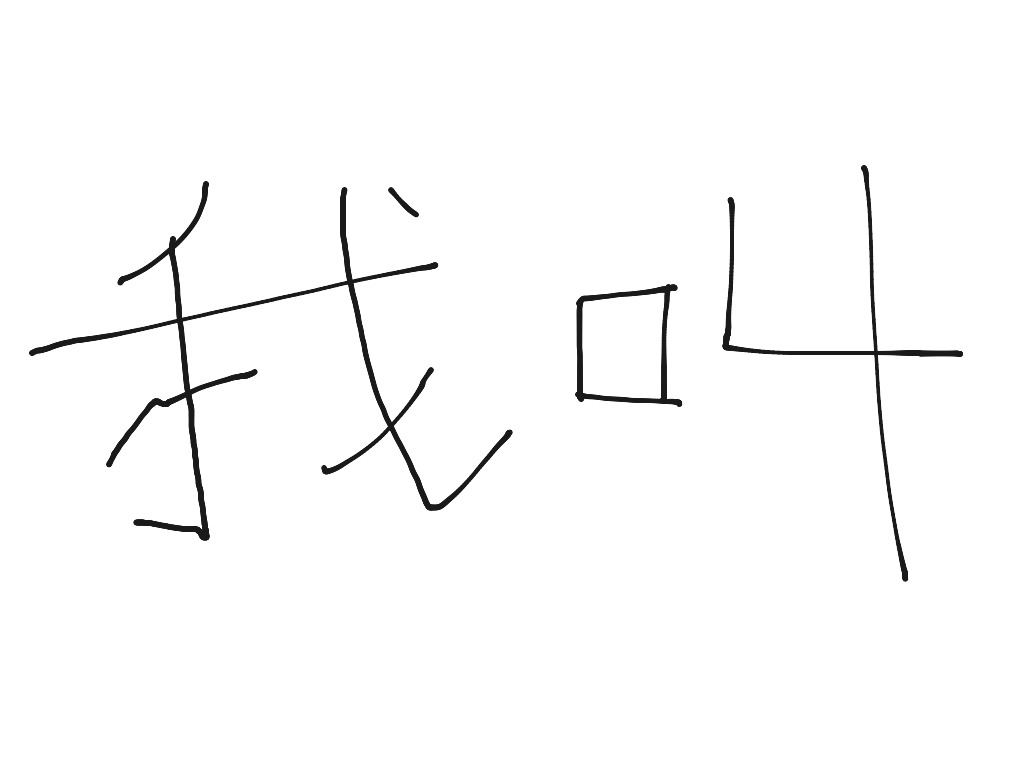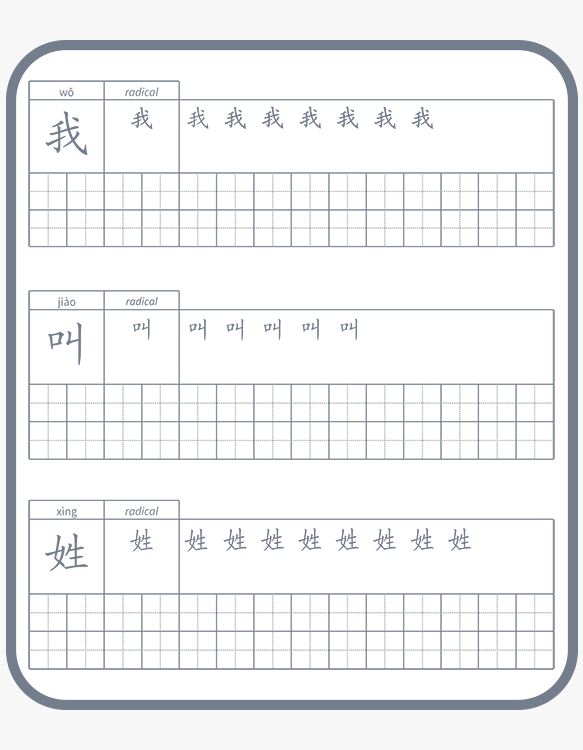Making Introductions
My Name
One of the most common usages of the phrase “wo jiao” is to introduce oneself by stating one’s name. A simple statement like “wo jiao Michael” would translate to “My name is Michael” in English. This construction is commonly used by children and foreigners learning Chinese to tell people their name. However, for native Chinese speakers, there are more polite and sophisticated ways to introduce one’s name that convey greater humility and respect.

A Humble Introduction
Rather than directly stating “my name is”, many educated Chinese people would say something like “wo de xing shi Zhu” which uses the word “xing” meaning surname and is roughly equivalent to saying “my humble surname is Zhu”. This came across as more modest and respectful. For example, one may say “wo de xing shi Chen, erdong Chen, daxiao de da, mingbai de ming” which translates to “my humble surname is Chen, my courtesy name is Er-dong, I’m the eldest, call me Ming”.
Requesting Something
Asking to Call Someone
Another usage of “wo jiao” is when asking to refer to someone by a specific name. For instance, when first meeting someone one may say “wo jiao ni Jenny, hao ma?” meaning “Can I call you Jenny?”. This constructs a request to address the other person in a familiar way using the name “Jenny”. Such a request shows friendliness and familiarity.
Asking Someone to Do Something
“Wo jiao” is also used when asking or instructing others to perform an action. A common example would be “wo jiao tamen anjing” which translates to “I ask them to be quiet”. In this context, “wo jiao” conveys the sense of “I told”, “I let” or “I asked” someone to do something. It implies directing or requesting others to carry out a certain action.
Teaching and Imparting Knowledge
Educating Students
For someone in a teaching position, “wo jiao” takes on the meaning of “I teach”. A teacher may say “wo jiao zhongwen” to indicate they teach Chinese language classes. Here “wo jiao” means “I impart knowledge on/ educate people about” a particular subject. It denotes one’s occupational role is to instruct and guide learning.
Explaining Concepts
When explaining a new idea or process, one may use “wo jiao ni men” followed by an explanation. For instance “wo jiao ni men zhe ge fanli” means “Let me explain this concept/principle to you”. In this context “wo jiao” takes on the nuance of presenting information to increase understanding. It’s about clarifying things for others rather than directly ordering people around.
Part of the Body
Snail Antennae
In a more creative or jocular context, “wo jiao” could refer to peculiar body parts like “wo jiao” meaning a “snail’s antennae”. While highly contextual and somewhat absurd, it demonstrates how Chinese words can have diverse potential meanings depending on their usage in different situations. Wordplay is an amusing aspect of any rich language.
Anthropomorphization
For animals and objects, “wo jiao” could be used in an anthropomorphic sense to describe their features. For example, a bull talking may say “wo jiao” to mean “my horns”, while a stag may use it for “my antlers”. Though uncommon, this shows how the context can imbue even inanimate things with human attributes for imaginative or comedic effect.
Homophones and Hidden Depths
Similar Pronunciations
The Chinese language contains many homophones where different characters are pronounced the same but have disparate meanings. One such case is “wo jiao” which as shown can variously mean “my name”, “I teach”, “my legs” or “snail antennae” depending on tone and context. Such ambiguities contribute to the richness but also complexity of the language.
Exploration of Possibilities
With its non-phonetic writing system, Chinese harbors depths that may never be fully plumbed even by lifelong students. Every word offers opportunities for new interpretations and contexts to be discovered. Delving into the diverse facets of “wo jiao” exemplifies how a single unassuming phrase encapsulates the intricacies and enduring appeal of the language. Its nuanced usages continue yielding fresh surprises.
Conclusion
The Significance of Context
In summarizing, the meaning of “wo jiao” is seen to be highly dependent on contextual cues rather than any fixed definition. Its translation ranges from “I am called” to “I teach” to referring to body parts, all grounded in the immediate linguistic and situational environment. This demonstrates the pivotal role of context in understanding any aspect of the rich yet intricate Chinese language. Constant reexamination of the relationships between words, syntax and scenarios is what prevents premature conclusions and keeps interpretations dynamic. With an open and inquisitive mindset, every conversation represents a chance to appreciate Chinese language’s semantic depth on a deeper level.

 A Detailed Guide to Traveling from Faisalabad to Kumrat Valley
A Detailed Guide to Traveling from Faisalabad to Kumrat Valley